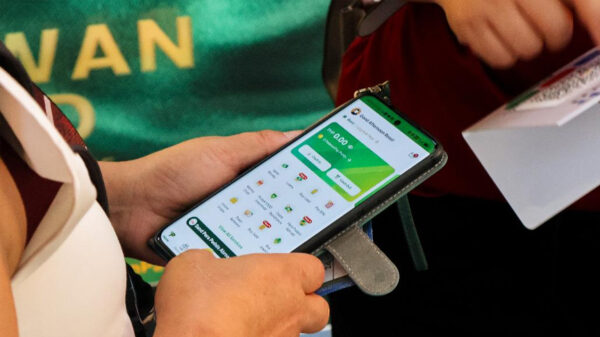PLDT and its wireless unit Smart Communications, Inc. (Smart) help business owners in the city of Biñan, Laguna to #BeCyberSmart by protecting them from financial crimes. The #BeCyberSmart pocket session at the recent Biñan City Sari-Sari Store Congress shared valuable tips on how to identify scams and fraud. The module is part of PLDT and Smart’s eBizNovation program that aims to equip micro-, small-, medium-scale enterprises (MSMEs) and cooperatives with digital skills and tools so they can access innovative livelihood opportunities or expand their businesses.
“PLDT and Smart take on a whole-of-nation approach to fighting scams and fraud. Aside from our robust cybersecurity infrastructure, we also prioritize educating our customers, particularly MSMEs who are increasingly adopting digital tools, to be proactive in protecting themselves through our #BeCyberSmart awareness campaign,” said Stephanie V. Orlino, AVP and Head of Stakeholder Management at PLDT and Smart. “Equipping them with the knowledge to identify and avoid scams is crucial as they navigate the digital livelihood opportunities being introduced to them.”
As MSMEs embrace digital innovations, they are also exposed to different online threats. ‘Phishing’ remains to be the most common tactic that scammers use to lure their victims into sharing sensitive data. Criminals often send click-bait messages via SMS to potential victims. These unsolicited SMShing messages often contain links that lead to compromised websites.
Scammers may also employ ‘vishing’ or phishing through voice calls where fraudsters, pretending to be bank agents, call their potential victims to trick them into sharing personal information like log-in details, account numbers, and credit card CVV numbers.
Customers can avoid falling prey to these nefarious activities by remembering the acronym – SCAM.
S is for ‘Suspicious’. Never answer calls or respond to messages from unverified or unknown numbers. Banks do not usually initiate calls nor send SMS asking for your bank account details. Likewise, official bank and telco representatives will never ask for OTPs.
C is for ‘Clickbait’. Scam texts often bait victims with too-good-to-be-true offers or prize winnings, urging them to click the link to avail of the limited-time offer.
A is for ‘Alarming’. Scammers create a sense of fear or dread to prod potential victims into sharing sensitive information.
M stands for ‘Malicious’. Text scams or emails are often accompanied by a link that leads to a phishing website.
To further keep customers safe, Smart has recently activated its new and more advanced network firewall to further clamp down on text scams and spams. Smart had earlier reported a significant decline in the number of SMShing messages after it migrated the bulk of its SMS handling capacity to the new blocking platform.
If you receive suspicious calls or messages, please report them to cybersecurityincidents@smart.com.ph and cybersecurityincidents@pldt.com.ph or to Smart’s verified and official social media pages – Smart Communications on Facebook and @SmartCares on X – or call our hotline *888.








































































































